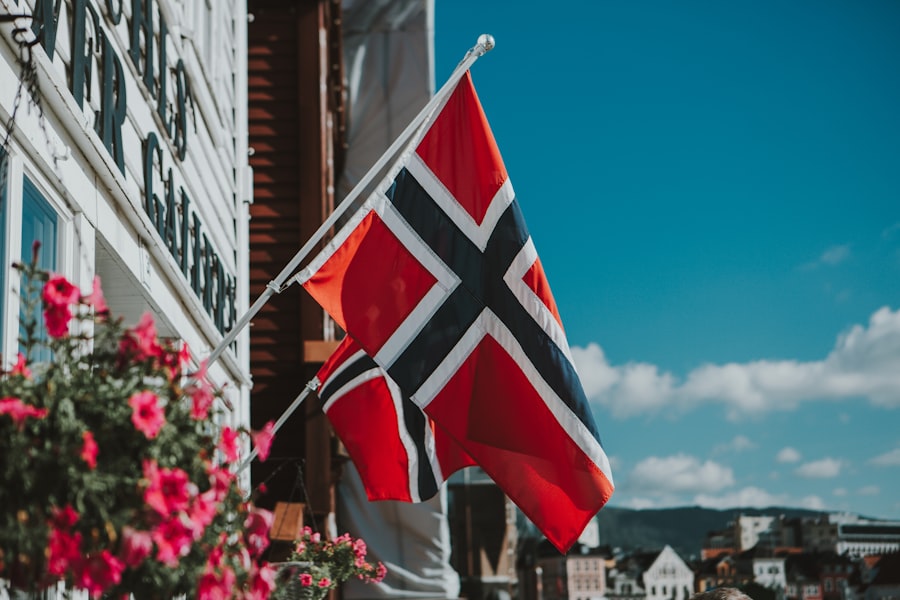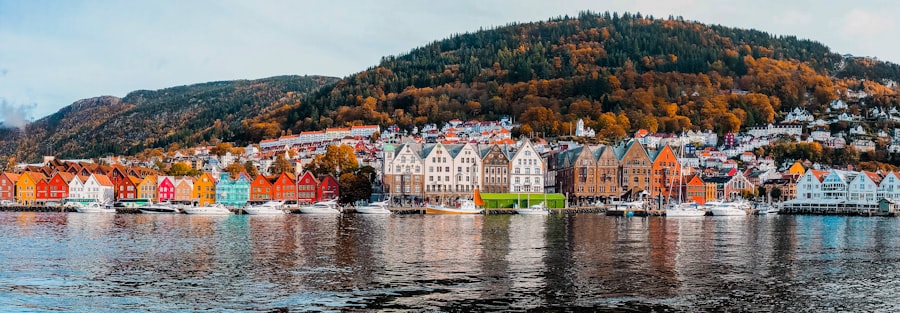Norway is renowned for its stunning landscapes, rich cultural heritage, and a lifestyle that prioritises work-life balance. One of the key components of this balance is the generous provision of public holidays and vacation days that Norwegians enjoy. Public holidays in Norway are not merely days off; they are deeply embedded in the cultural fabric of the nation, often celebrated with various traditions and festivities.
Understanding how these holidays work, alongside the vacation days allocated to employees, is essential for anyone looking to navigate life in Norway, whether they are locals or expatriates. For those considering a move to Norway, the Norway Relocation Group can be an invaluable resource. They offer comprehensive support in understanding the nuances of living and working in Norway, including insights into public holidays and vacation entitlements.
Their expertise can help newcomers acclimatise to the local customs and regulations, ensuring a smoother transition into Norwegian life. With their assistance, individuals can better plan their time off, making the most of both public holidays and vacation days. Your journey to a smooth relocation starts here. Talk one-on-one with a Norway Relocation specialist and turn your plan into a reality.
Summary
- Public holidays and vacation days in Norway are an important part of the work-life balance and are regulated by specific laws and regulations.
- ‘Feriepenger’ is a concept unique to Norway, which refers to holiday pay that employees receive during their vacation days.
- Public holidays can impact an employee’s salary and vacation days, as they are entitled to paid time off on these days.
- Calculating ‘feriepenger’ involves understanding the specific rules and regulations set by the Norwegian Labour Act and the Annual Holidays Act.
- Legal regulations in Norway dictate entitlements for public holidays and vacation days, including minimum vacation days and rules for holiday pay.
Understanding the Concept of ‘Feriepenger’
In Norway, ‘feriepenger’ translates to ‘holiday pay’, a concept that is integral to the country’s approach to employee benefits. This system ensures that workers receive compensation during their vacation periods, allowing them to take time off without financial strain. The accumulation of ‘feriepenger’ is typically based on a percentage of an employee’s earnings from the previous year, which is then paid out when they take their holiday.
This system not only encourages employees to utilise their vacation days but also promotes a healthy work-life balance. The calculation of ‘feriepenger’ can vary depending on the sector and individual employment contracts. Generally, employees earn 10.2% of their gross salary as holiday pay, which increases to 12% for those over 60 years old.
Understanding this concept is crucial for expatriates and new employees in Norway, as it directly impacts their financial planning and holiday enjoyment. The Norway Relocation Group can provide guidance on how ‘feriepenger’ works in practice, helping newcomers navigate this essential aspect of Norwegian employment.
Impact of Public Holidays on Salary and Vacation Days

Public holidays in Norway are designated days when employees are entitled to time off work with pay. These holidays can significantly impact both salary and vacation days, as they are often considered separate from annual leave entitlements. For instance, if a public holiday falls on a weekend, employees may not receive an additional day off unless stipulated by their employment contract.
This can lead to confusion regarding how many vacation days one has left after accounting for public holidays. Moreover, public holidays can also influence salary calculations. Employees who work on these days are typically entitled to extra compensation, often referred to as ‘overtidsbetaling’ or overtime pay.
This additional financial incentive encourages employees to work during public holidays while ensuring they are fairly compensated for their time. Understanding these nuances is vital for anyone working in Norway, as it allows them to maximise their earnings while enjoying their well-deserved time off.
Calculation of ‘Feriepenger’
Calculating ‘feriepenger’ can seem daunting at first, but it follows a straightforward formula that most employees can grasp with a little guidance. As mentioned earlier, the standard rate for holiday pay is 10.2% of an employee’s gross salary from the previous year. For example, if an employee earned 500,000 NOK in 2022, their holiday pay for 2023 would amount to 51,000 NOK.
This sum is typically paid out when the employee takes their holiday, allowing them to enjoy their time off without financial worries. It is also important to note that ‘feriepenger’ is not subject to tax until it is paid out. This means that employees can benefit from a larger sum when they take their holiday, as they will not have taxes deducted until later.
Understanding how ‘feriepenger’ accumulates and is calculated can empower employees to plan their vacations more effectively. The Norway Relocation Group can assist newcomers in grasping these calculations, ensuring they are well-informed about their entitlements and financial planning.
Legal Regulations and Entitlements for Public Holidays and Vacation Days
Norway has robust legal regulations governing public holidays and vacation days, ensuring that employees are well protected in their rights. The Working Environment Act stipulates that employees are entitled to a minimum of 25 vacation days per year, in addition to public holidays. This legal framework not only safeguards workers’ rights but also promotes a culture where taking time off is encouraged rather than frowned upon.
Furthermore, specific public holidays are recognised by law, including New Year’s Day, Labour Day, Constitution Day, and Christmas Day, among others. Employers are required to provide paid leave on these days unless otherwise agreed upon in individual contracts. Understanding these legal entitlements is crucial for both employees and employers alike, as it fosters a transparent working environment where rights are respected.
The Norway Relocation Group can provide detailed information on these regulations, helping newcomers navigate their rights and responsibilities effectively.
Strategies for Maximising Salary and Vacation Days around Public Holidays

To make the most of salary and vacation days around public holidays, strategic planning is essential. One effective approach is to align vacation days with public holidays to create extended breaks without using too many annual leave days. For instance, if a public holiday falls on a Friday or Monday, taking adjacent days off can result in a long weekend without significantly impacting one’s vacation balance.
Additionally, employees should be aware of their company’s policies regarding public holidays and overtime pay. If working on a public holiday is unavoidable, negotiating for additional compensation or time off in lieu can be beneficial. By understanding these strategies and planning ahead, employees can maximise their time off while ensuring they are fairly compensated for their work during public holidays.
Negotiating Public Holiday and Vacation Day Entitlements with Employers
Negotiating entitlements related to public holidays and vacation days can be a delicate process but is often necessary for ensuring fair treatment in the workplace. When entering negotiations with employers, it is crucial to be well-informed about legal rights and company policies regarding holiday pay and time off. Employees should prepare by gathering relevant information about industry standards and any precedents within the company.
Approaching negotiations with a clear understanding of one’s worth and contributions to the organisation can also strengthen one’s position. Articulating how fair holiday entitlements contribute to overall productivity and morale can persuade employers to consider more favourable terms. The Norway Relocation Group can offer valuable insights into effective negotiation strategies tailored to the Norwegian workplace culture.
Planning for Public Holidays and Vacation Days in Norway
Effective planning for public holidays and vacation days requires foresight and organisation. Employees should keep track of public holidays throughout the year and consider how these dates align with personal commitments or travel plans. Creating a calendar that highlights both public holidays and available vacation days can help individuals visualise their time off and make informed decisions about when to take leave.
Moreover, it is advisable to communicate with employers well in advance regarding planned vacations or time off during public holidays. This proactive approach not only demonstrates professionalism but also allows employers to manage workloads effectively during peak holiday seasons. The Norway Relocation Group can assist newcomers in developing effective planning strategies that align with local customs and workplace expectations.
Balancing Work and Leisure during Public Holidays
Striking a balance between work responsibilities and leisure during public holidays is essential for maintaining overall well-being. While it may be tempting to catch up on work during these breaks, it is crucial to prioritise relaxation and personal time. Engaging in leisure activities or spending quality time with family and friends can rejuvenate one’s spirit and enhance productivity upon returning to work.
Employers also play a significant role in fostering this balance by encouraging employees to disconnect from work during public holidays. Creating a culture that values time off not only benefits individual employees but also contributes positively to workplace morale and productivity overall. The Norway Relocation Group can provide insights into how expatriates can adapt to this balance while respecting local customs.
Effect of Public Holidays on Workplace Productivity and Morale
Public holidays have a profound impact on workplace productivity and morale in Norway. When employees are given adequate time off to recharge, they return to work feeling refreshed and motivated. This rejuvenation often leads to increased productivity levels as employees are more focused and engaged in their tasks.
Moreover, celebrating public holidays together fosters camaraderie among colleagues, strengthening team dynamics and enhancing workplace culture. Employers who recognise the importance of these breaks tend to cultivate a more positive work environment where employees feel valued and appreciated. The Norway Relocation Group can help organisations understand the benefits of promoting a healthy work-life balance through effective management of public holidays.
Conclusion and Key Takeaways for Managing Public Holidays and Vacation Days in Norway
In conclusion, understanding public holidays and vacation days in Norway is essential for both employees and employers alike. With generous entitlements governed by legal regulations, Norwegians enjoy a robust system that promotes work-life balance through ‘feriepenger’ and paid leave on public holidays. By strategically planning vacations around these holidays, negotiating entitlements effectively, and fostering a culture that values leisure time, individuals can maximise their time off while maintaining productivity at work.
For newcomers navigating this landscape, the Norway Relocation Group offers invaluable support in understanding local customs and regulations surrounding public holidays and vacation days. Their expertise ensures that expatriates can seamlessly integrate into Norwegian life while making the most of their well-deserved breaks. Ultimately, embracing the spirit of leisure during public holidays not only enhances personal well-being but also contributes positively to workplace morale and productivity across the board.
Register for a Norwegian class at the NLS Norwegian Language School now!

